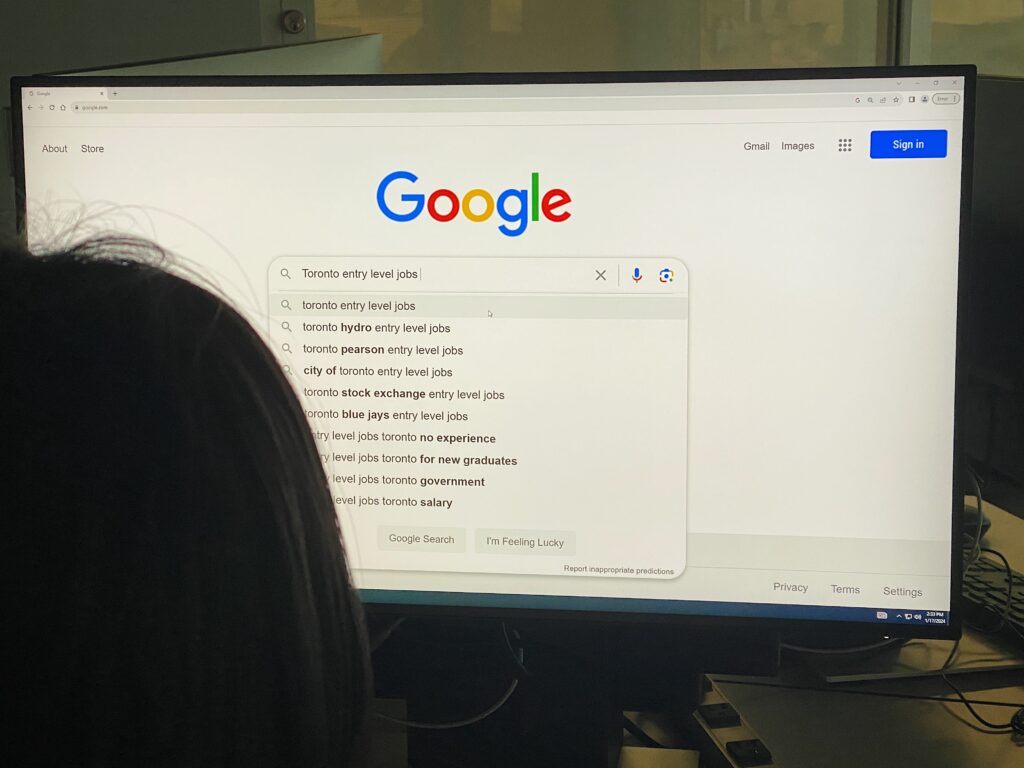
Listen to the full story here:
Toronto university students who entered university during the COVID-19 pandemic are set to graduate in three months, but some have expressed concern about entering the workforce post-graduation due to completing over half of their degree online.
On March 13, 2020, universities in Toronto cancelled all in-person classes and went fully online until February 8, 2021. Despite students returning to campus a year later, many classes continued to be offered solely online.
A 2023 study conducted by Statistics Canada revealed that university, college and trade graduates between the ages of 25 and 29 all experienced a steep increase in unemployment during the year following the 2020 pandemic.
“I am definitely not prepared enough for what I want to do once I graduate,” said Emilie Nhan, a fourth-year criminology student at the University of Toronto.
Nhan said that had she been exposed to more resources at the beginning of her degree she would have been in a better position now. “If I was able to plan better, I wouldn’t have to take more courses after graduating, but I didn’t know all of my options before it became too late to change my major,” said Nhan.
Nhan is now enrolled in a crime analytics certificate course at the Chang School of Continuing Education at TMU for the spring semester because she says the degree she studied for the past four years did not teach her the skills needed to land a job in her field.
“Most of the jobs that I want to apply for require geographic information systems skills,” said Nhan.“ It turns out that my university offered an entire major on this skill, but I had no idea due to my lack of resources and knowledge. If my first few years were not online, I could have attended career fairs and had more opportunities to speak with professors and better plan my career path.”
Employers and recruiters also say they are having difficulty finding new hires.
“Our career fairs were a major avenue for finding graduates,” said Linh Huynh, a recruiter and human resources consultant for the federal government of Canada.
Huynh explained that most recruiters prefer to meet with possible hires and discuss their resumes in person, which has become difficult now that most events are being held online since the pandemic.
Huynh also stated that the training process of new hires had to be modified as many lacked “technical skills” when it came to operating remotely.
A 2022 study on the effects of perceived employment conducted by researchers at the University of Bologna found that the economic downturn of the pandemic has caused companies to become more cautious with their hiring behaviours resulting in the drop of how many entry-level jobs were available.
The study also revealed that the sudden interruption of learning had disturbed the learning processes of university students, creating gaps in their skills and knowledge.
Fourth-year biomedical science student at Toronto Metropolitan University, Lloyd Pineda, is planning on taking a gap year after graduating followed by a master’s degree because he lacks confidence regarding his place in the current workforce.
“Due to online learning, I was not able to make connections with professors or professionals within the school to discuss my options after graduating,” said Pineda. “If my first two years were in person, I feel as though the likelihood of me gaining more skills and finding a job would have been much higher.”
Reporter, On the Record, winter 2024

